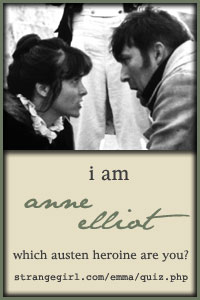In
a small moment of huge significance this week, whether intended as such or not,
the 45-year conductor of the Metropolitan Opera, James Levine, humane and full
of love for music and for life, gave a signal to the orchestra and chorus to begin
an unprecedented encore of "Va
Pensiero," the Chorus of Hebrew Slaves in Verdi's opera Nabucco, during the broadcast to listeners
in some two thousand theatres in seventy countries. "Oh my country, so beautiful and lost .
. ." The song of the exiles on the
banks of the Euphrates in conquering Babylon, lamenting the loss of their
homeland.
Verdi
wrote the supremely moving piece when Italy was struggling for its own freedom
in the late 1800s, and it quickly became a
popular anthem for the Italian people, expressing their longing for political
freedom from Austria, for unification of their country. It was surely not by accident that we were
given this shared gift of solidarity and spiritual comfort just when we in
America are heading into the dark night of exile.
So
many echoing cries of the heart, for loss both personal and national—and far
beyond. Verdi
composed Nabucco at a difficult moment in his life, when his wife and
small children had all just died. When Verdi's coffin was carried to its final resting place a
month after his death in 1901, the crowd of a quarter of a million people along
the route spontaneously began singing the stirring chorus. A
month later, when he was reinterred alongside his wife at the "Casa di
Riposo," a young Arturo Toscanini conducted a choir of eight hundred in
the famous hymn (once proposed as the Italian national anthem).
"But the reason the Italians took to the
streets that wintry day at the dawn of the last century was about much more
than just music. Verdi’s operas had provided the soundtrack to the politically
tempestuous half-century that preceded his death, and his most famous arias had
become quasi-anthems for a nation recently unified. When Nabucco had its
premiere at La Scala in 1842, ‘Italy’ was simply a cluster of geographically
contiguous kingdoms and principalities with little more to unite them than a
common language.
So when
Italians sang the Chorus of the Hebrew Slaves at Verdi’s funeral procession, it
wasn’t just because it was a catchy tune they knew the words to. Its subject—the
Israelites giving poignant voice to their longing for the promised land—had
become a powerful analogue for the long-frustrated desires of the Italian
people. When they cried 'Viva Verdi!'
during the funeral procession, they were still acutely conscious of the
slogan’s double meaning and its clandestine resonance for the agitators of ‘the
Risorgimento,’ as the cause of Italian nationalism was known. The letters VERDI
also spelled out the name of the King of Sardinia who, in 1861, finally took
the throne of a unified nation for the first time since the 6th Century—Victor
Emmanuele Re D’Italia."
In 2011, after playing 'Va, pensiero' at a performance of Nabucco
at the Teatro dell'Opera in Rome, conductor Riccardo Muti made a short speech
protesting cuts in Italy's arts budget, then asked the audience to sing along
in support of culture and patriotism. In
the same spirit, I think, conductor James Levine was through the repetition of
the famous music asking our support of both.
Music will perhaps save us, when
nothing else can. Or at least memorialize
our dear lost
land.
Va, pensiero, sull'ali dorate;
va, ti posa sui clivi, sui
colli,
ove olezzano tepide e molli
l'aure dolci del suolo natal!
Del Giordano le rive saluta,
di Sionne le torri atterrate...
O, mia patria, sì bella e
perduta!
O, membranza, sì cara e fatal!
Arpa d'or dei fatidici vati,
perché muta dal salice pendi?
Le memorie nel petto raccendi,
ci favella del tempo che fu!
O simile di Sòlima ai fati
traggi un suono di crudo
lamento,
o t'ispiri il Signore un
concento
che ne infonda al patire virtù.
Go, thought, on wings of gold;
go settle upon the slopes and the
hills,
where, soft and mild, the sweet
airs
of our native land smell
fragrant!
Greet the banks of the Jordan
and Zion's toppled towers...
Oh, my country, so beautiful and
lost!
Oh, remembrance, so dear and so
fatal!
Golden harp of the prophetic
seers,
why dost thou hang mute upon the
willow?
Rekindle our bosom's memories,
and speak to us of times gone by!
Oh you akin to the fate of
Jerusalem,
give forth a sound of crude
lamentation,
oh may the Lord inspire you a
harmony of voices
which may instill virtue to
suffering.
(libretto, Temistocle Solera, inspired by Psalm 137)
image: Nabucco, Assembly Hall Theatre




















No comments:
Post a Comment